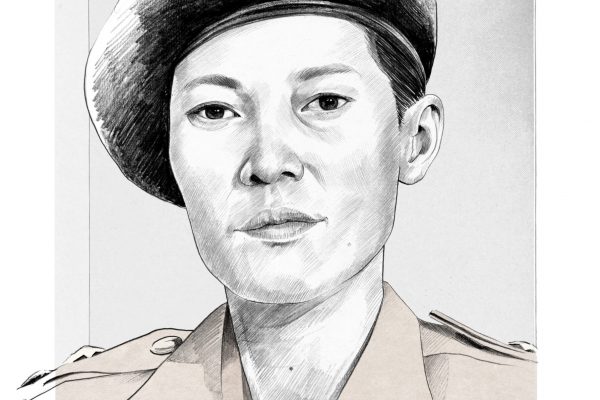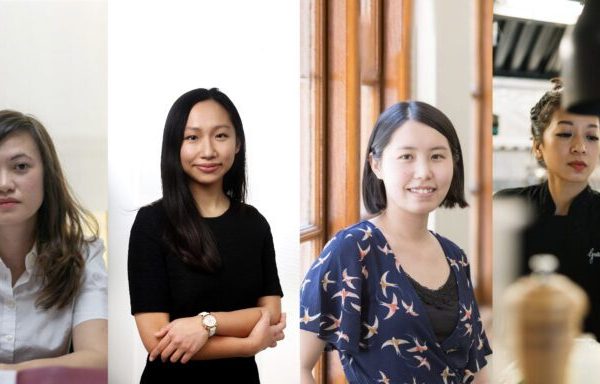Youth in Focus: Students helping students in Hong Kong
A few years ago, Reese Wong noticed a problem. He was completing an internship at local mental health NGO Mind HK, when he realised that students from schools across Hong Kong didn’t have a safe space to come together and discuss LGBT+ issues, racism, mental health and other everyday struggles.
“Teenagers around the world go through so much,” says the 17-year-old student and youth advocate from Sha Tin College. “And we have limited opportunities to talk about some of these problems, and work together to facilitate change in our community.”
Wong set to work filling the void, because he wanted his peers to feel heard. So he went on to establish the Inter-school Social Issues Association (ISSIA) in 2019, an organisation that connects students from across Hong Kong so they can collaborate on projects, discuss social issues and support one another. The group also sheds light on social issues such as mental health, LGBT+ rights, racism, politics, gender and identity through published articles, opinion pieces, podcasts, events and research.
In its first year, ISSIA has launched a student-led digital publication and a podcast, while simultaneously conducting research about young people, including a survey on social engagement among teens. They also regularly hold online events and webinars, such as the Youth NGO Summit, which taught students how to establish their own social organisation.
As the inaugural profile in our new Youth in Focus series, Ariana spoke with Wong about his work, and why he thinks it’s crucial for young people to connect with each other.
Hong Kong student and founder of ISSIA Reese Wong. Credit: Reese Wong
Ariana: What made you feel compelled to fill this gap and create ISSIA?
Reese Wong: I think teens are often an overlooked stakeholder in discourse when it comes to social change and issues that we often see in the news. For example anti-Chinese sentiments that proliferated during the pandemic or discrimination against the LGBT+ community.
People might think that we lack experience and knowledge; there’s also an added assumption that young people should focus on their academics only. But we have seen time and time again that the power of youth cannot be underestimated.
As the future generation of leaders, we are primarily responsible for driving progress – be it through a shift in public discourse or making an impact in our local communities. As such, I think it is incredibly important to start early and take action. At ISSIA, we feel strongly about exposing our peers to a variety of opinions and perspectives. We do this through our regular articles, and podcasts. We aim to get a diverse range of voices, from LGBT+ youth to people that have different political views.
Ariana: How does ISSIA get the word out about social issues?
RW: ISSIA sheds light on all kinds of social issues through multimedia: podcasts, written work and videos. Our flagship print magazine, however, is ISSIA magazine, which will launch later this year. We pushed back the project due to school closures during Covid-19. It is an entirely student-led body of work, from management to editorial to design.
Each issue will provide in-depth analysis and unpack topics such as mental health, human rights, culture and socio-political dilemmas. Most recently, we published a piece about Asian-American identity, which featured the personal reflections of two people who are struggling to find their identities amid the confusing intersection of two very different cultures.
We published another story about polarised politics in Hong Kong. The author analysed how Hong Kong politics doesn’t fall under the “Western” left and right ideologies, but rather has its own polarising discourse due to its relationship with China and its unique status as a city-state.
We also want the magazine to be a platform for other forms of expression, including artwork and photography. I think that such a platform would be a very good opportunity to showcase the diverse talents of Hong Kong students and ensure student voices are heard and represented.
Ariana: What does ISSIA HK want to achieve?
RW: At its core, ISSIA aims to foster stronger inter-school links and create a platform for discourse on social issues in Hong Kong and beyond. We want to cultivate socially conscious students as the leaders of tomorrow, providing opportunities to engage with a medley of social issues.
We are continually seeking to bridge the gap between international and local schools, because of our differing academic syllabuses and peer groups. For example, the curriculum in many local schools might be more academic-focused, whereas international schools place importance on non-academic pursuits as well.
Our team consists of increasing numbers of local school students, and it’s great that we get this exchange of ideas from a variety of backgrounds, helping us ensure that our content remains relevant. We have also partnered with a local-school led publication to help diversify our content.
All in all, we want to continue to build a strong community in which members feel included and welcomed. Beyond a platform for discourse, ISSIA is also a community for networking and making friends with other socially conscious individuals!
Ariana: How does ISSIA connect students across Hong Kong and around the world?
RW: ISSIA’s core strength is its diversity. We currently have more than 140 active contributors, designers and other members from more than 30 schools in Hong Kong. We also have contributors from the LGBT+ community and ethnic minority groups, and this number increases by the day.
We connect artists, writers, podcasters, event managers and more, underpinned by a common goal of establishing a free platform for discourse on social issues. It has been really fulfilling to work with a team that is so talented and diverse.
We recently held a virtual graduation ceremony for 2020 graduates, where anyone could join and give speeches. One of the key takeaways from this event was that ISSIA is more than just an organisation and platform to discuss social issues, but is in itself a community where lasting friendships are formed.
It is this diversity that allows ISSIA to leverage our connections to get more schools and students involved. ISSIA has also expanded internationally, with international contributors from more than 10 countries including the United States, Britain, India, Vietnam, Russia, and The Philippines.
For example, the piece about Asian-American identity was submitted by two Chinese-American students. We published another piece from a contributor in The Philippines which shed light on Covid-19 relief-work in the country.
Ariana: What are some of the challenges you have faced and how are you overcoming them?
RW: Running an “inter-school” organisation meant that most of our work had to be conducted remotely and, as such, communication was often difficult. Covid-19 has also brought about restrictions in terms of hosting live events and workshops. In light of this, we focused on our multimedia strategy whilst still planning for when normality resumes.
So now, all of our content – articles, photo essays, artwork – is published online, either on our website or social media. We are hosting webinars rather than live events, and have had to delay the launch of our print publication given that no one is in school. On the bright side, it has given us more time to perfect the design, layout and scope of the magazine.
Ariana: What do you envision for the future of ISSIA?
RW: For the coming year, we will focus on the ISSIA Magazine and forming consistent distribution channels and readership. When we launch, it will be the first inter-school magazine in Hong Kong.
We are also working to establish more than 10 ISSIA School Chapters across Hong Kong laying the foundations for the long-term sustainability of the organisation.

